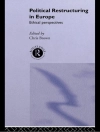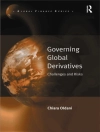The Information Society is one of the recurrent imaginaries to describe present-day structures, discourses and practices. Within its meaning is enshrined the promise of a better world, sometimes naively assuming a technological deus ex machina, in other cases hoping for the creation of policy tools that will overcome a diversity of societal divides. With the two-phased World Summit on the Information Society (WSIS), the United Nations attempted to stimulate the development of such tools. Simultaneously, the WSIS is a large-scale experiment in multistakeholderism. The objective was to create a more balanced decision-making process that would allow the voices of civil society and business actors to be heard in international politics. This book aims to evaluate the potentialities of both the Information Society, and the WSIS in supporting and constructing more democratic, just and developed societies. It is the second book arising from the intellectual work of European Consortium for Communications Research members.
Содержание
1 Bart Staes:
Foreword: Towards a New Democratic Lingua Franca
5 Jan Servaes and Nico Carpentier:
Introduction:
Steps to Achieve a Sustainable Information Society
17 Bart Cammaerts & Nico Carpentier:
1: The Unbearable Lightness of Full Participation in a Global Context: WSIS and Civil Society
Participation
51 Claudia Padovani & Arjuna Tuzzi:
2: Communication Governance and the Role of Civil Society. Reflections on Participation and the
Changing Scope of Political Action
81 Divina Frau Meigs:
3: Civil Society’s Involvement in the WSIS Process. Drafting the Alter-agenda
97 Ned Rossiter:
4: WSIS and Organized Networks as New Civil Society Movements
117 Stefano Martelli:
5: How Civil Society Can Help Civil Society
129 Miyase Christensen:
6: What Price the Information Society? A Candidate Country Perspective within the Context of
the EU’s Information Society Policies
151 Michel Bauwens:
7: Peer-to-Peer: From Technology to Politics
169 Paul Verschueren:
8: From Virtual to Everyday Life
185 Claudio Antonio Feijóo González, José Luis Gómez Barroso, Ana Laguía González, Sergio Ramos Villaverde, David Rojo Alonso:
9: Shifting from Equity to Efficiency Rationales: Global Benefits Resulting from a Digital
Solidarity Fund
195 Barbara Thomass:
10: PSB as an Instrument of Implementing WSIS Aims
203 Afterword
Peter Johnston
Towards a Knowledge Society and Sustainable Development.
Deconstructing the WSIS in the European Policy Context
207 ECCR:
Recommendations on the Subject of Research and Education in the Area of the Information
Society
211 Notes on Contributors
Об авторе
Nico Carpentier is extraordinary professor at Charles University (Prague, Czech Republic); he also holds a part-time position at Vilnius Gediminas Technical University (Lithuania). Previously, he was treasurer (2005–12) and vice-president (2008–12) of the European Communication Research and Education Association (ECREA), and treasurer (2012–16) of the International Association for Media and Communication Research (IAMCR). Currently, he is IAMCR president (2020–24).
Contact: Institute of Communication Studies and Journalism, Faculty of Social Sciences, Charles University, Smetanovo nábřeží 6, 110 01 Prague, Czech Republic.












